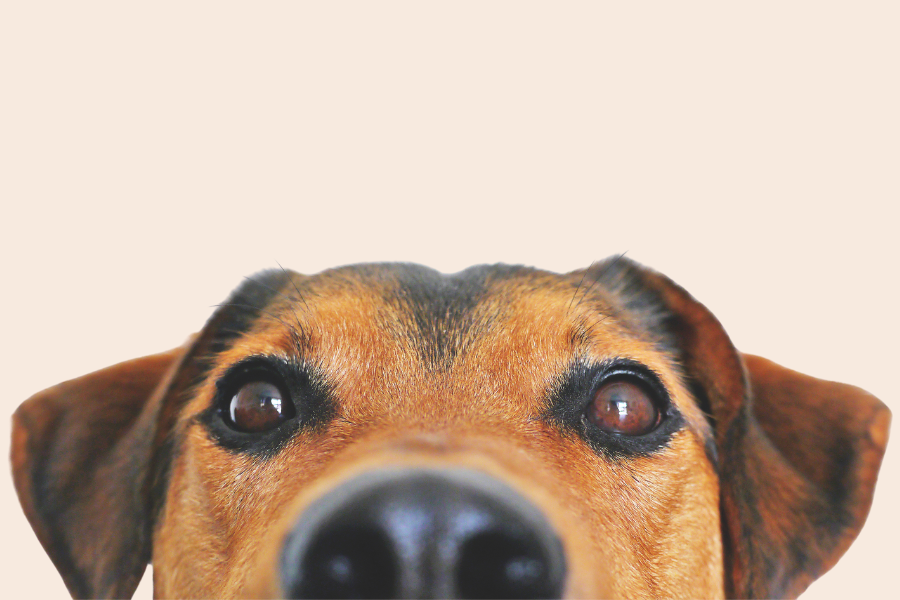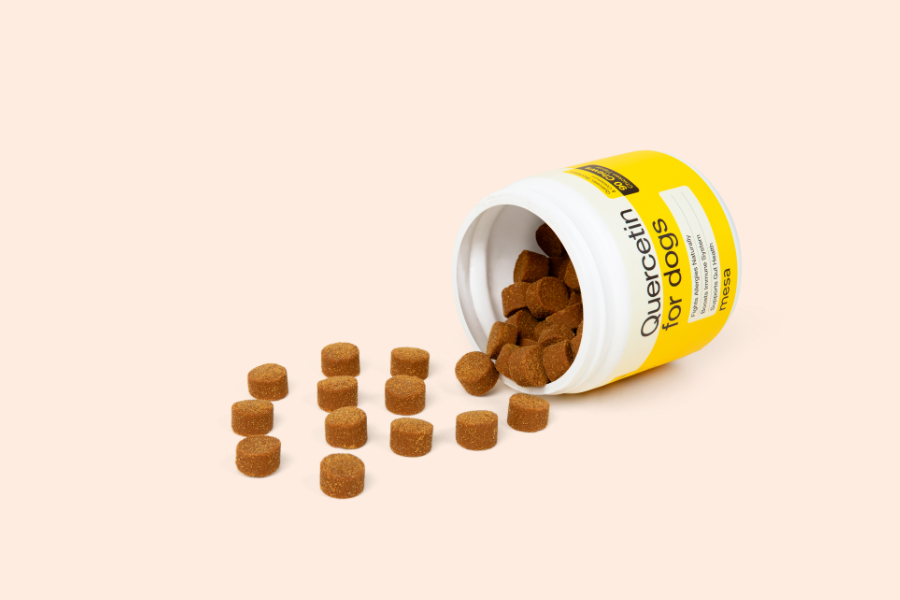So, picture this. You're just chilling on your couch, right? Suddenly, there's this awful smell that makes you want to gag. You take a quick look around, ready to accuse your roommate - or maybe that old pizza box still lying around. But then it hits you. It's your pup. You've got it - dog farts are a thing, and man, they can stink! But ever pondered why? What makes your dog's toots so darn potent? Well, gather round, let's tackle this in the most entertaining and non-smelly way we can, shall we?
What Causes Dog Farts, Anyway?
I hate to break it to ya, but dogs are a lot like humans, and just like us humans, dogs get gassy when there's a build-up in their digestive system. And unfortunately, that gas often finds its way out at the tail end. Now, some dogs might be more gassy than others, but in general, here's what usually stinks up the place:
What they eat
What your dog eats on the daily plays a probably the biggest part in how gassy they become. Some ingredients, especially those jam-packed with fiber or those that are troublesome for dogs to break down, can actually produce more gas during digestion. The usual culprits are:
- Beans and legumes: Stuff like lentils, chickpeas, and soy can be a nightmare for your dog's belly.
- Dairy treats: A lot of dogs can't handle lactose, leading to gas and bloating.
- Leftovers: Those scraps from your plate, especially fatty or rich stuff, are a no-no for your doggo's tummy.
- Cheap dog food: Lower grade dog foods often contain fillers like corn and wheat, turning your dog into a fart factory.
Your dogs might love the taste of our food, but their bellies just can't handle the aftermath. So next time you're tempted to toss them that pizza crust or cheese, remember, you’re shaking up a gassy storm in their tummy.
How they eat
Is your dog a food inhaler? Well, they could be swallowing more than just their food. This extra air in their belly? Yep, that's even more gas. Dogs that wolf down their meals are often stinkier, so getting them to slow their feeding frenzy might help cut down on the stench.
Digestive problems
Some dogs just have sensitive bellies. Things like food allergies, IBS, or IBD can leave their digestive system in a state that's more likely to produce gas. Poor digestion simply equals more air fresheners needed around the house.
Gut bugs (bacteria)
Your dog's digestion is aided by bacteria in their gut that break down food. If these tiny helpers are out of balance, it can lead to a gas overproduction resulting in some seriously smelly farts. If the bad bacteria start taking over, or if there's a sudden change in your dog's diet, that could mean extra-stinky farts.
Why Do Dog Farts Smell Worse Than Human Farts?
Okay, so we know that dogs fart because of gas buildup, but why do their farts smell so unbearably bad? Shouldn’t all farts smell the same? The answer lies in what’s going on inside your pup’s stomach.
1. Sulfur Compounds
Many dog farts have a distinct "rotten egg" aroma, thanks to sulfur. Foods like broccoli, cabbage, and meat contain sulfur, which is broken down during digestion and releases those stinky gases. A diet rich in sulfur-heavy ingredients equates to dog farts that could clear a room.
2. Shorter Digestive Systems
Dogs have shorter digestive tracts than humans, which means food is processed—and gas is created—more quickly. A shorter processing time can result in stinkier gases being expelled.
3. Protein-Rich Diets
Dogs are natural carnivores, and many dog foods are high in protein to meet their dietary needs. But protein-rich foods often lead to more pungent gas. And when that protein comes from certain sources, like red meat, you might notice a particularly nasty smell after your furry friend has been chowing down.
Are Some Breeds More Gassy?
Absolutely! Just like people, some dogs are naturally more prone to gas. Brachycephalic breeds, like Bulldogs, Boxers, and Pugs, are notorious for their gassy tendencies. Why? Their short noses mean they tend to swallow more air while eating and drinking, leading to more frequent farting. Bulldogs, in particular, have earned the reputation of being fart machines.
Larger breeds, like German Shepherds and Labrador Retrievers, can also have sensitive stomachs that make them more prone to digestive issues. Genetics and anatomy both play a role in how gassy your dog might be.
How Can You Reduce Your Dog’s Farts?
While dog farts are a fact of life, there are steps you can take to reduce their frequency (and improve the air quality at home). Here’s how to take matters into your own hands—no gas masks required!
1. Adjust Their Diet
The simplest way to tackle a gassy dog is to examine what they’re eating. Switch to high-quality, easily digestible dog food, and avoid giving them table scraps or foods that are known gas triggers. Some dogs may benefit from a grain-free or limited-ingredient diet.
2. Slow Down Mealtime
If your dog wolfs down their food, try using a slow feeder bowl or puzzle feeder to slow them down. Less air swallowed = less gas expelled!
3. Exercise
Regular exercise can help keep your dog’s digestive system moving smoothly. Take them for daily walks or play fetch in the backyard—it’s good for their gut and their overall health.
4. Probiotics
If your dog’s gut bacteria seem out of whack, adding a dog-safe probiotic to their diet might help. Probiotics can rebalance their microbiome and reduce those stinky byproducts.
5. Consult Your Vet
If your dog’s farts are especially foul or frequent, or if they’re showing other signs of digestive distress (like diarrhea or vomiting), it’s time to visit the vet. They can rule out any underlying health conditions and recommend a suitable diet or treatment.
6. Try a New Protein Source
Sometimes, the type of protein your dog is eating (e.g., chicken, beef, lamb) could be the issue. Experimenting with alternative protein sources, like salmon or duck, might make a difference.
Should You Be Worried About Dog Farts?
While stinky dog farts are usually harmless, they can sometimes be a sign of something more serious. If your dog’s gas is accompanied by symptoms like lethargy, bloating, or sudden changes in appetite, you should contact your vet to rule out more significant health concerns.
That said, most dog farts are just a natural (albeit smelly) part of life with a canine companion. And hey, at least now you know why they stink so bad—it’s not their fault!
Final Thoughts
So we know, dog farts may not be the most glamorous topic, but understanding what causes them (and how to manage them) can make sharing your home with a pooch much more enjoyable. At the end of the day, we put up with the smells because we love our dogs—and honestly, what’s a little stench between best friends?
Do you have a fart-prone pup at home? Share your stories (or your tips for managing the stink) in the comments! And don’t forget to give your gassy friend a pat on the head—they can’t help it, after all.
References
1) Veterinary Partner. (n.d.). Zinc-responsive dermatosis in dogs. Veterinary Information Network. Retrieved December 20, 2024, from https://veterinarypartner.vin.com/default.aspx?pid=19239&id=4952806



